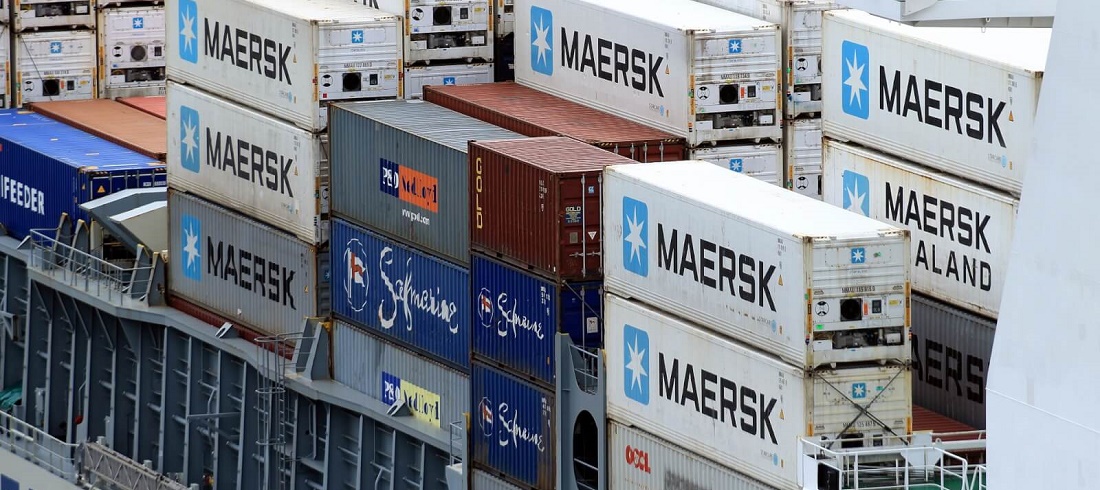
Seaborne reefer trade to contract for the second consecutive year
Nov, 30, 2023 Posted by Gabriel MalheirosWeek 202343
In the final quarter of the year, the outlook for seaborne reefer trade has weakened with cargo demand now expected to post a second consecutive year of decline. Meanwhile, transit restrictions on the drought-stricken Panama Canal are starting to impact vessel capacity serving exports of perishables out of the West Coast of South America.
A convergence of factors, ranging from climate impacts on key fruit crops, to weak Chinese demand and geopolitical tensions, have dampened the short-term outlook, with total seaborne reefer trade for 2023 forecast to decline -0.5% YoY, according to Drewry’s Reefer Shipping Forecaster report published recently. This will follow last year’s contraction of 0.8% and will represent two consecutive years of declining trade.
Meat remained the largest commodity by volume in 3Q23. Despite strong pork exports from the US and Brazil so far this year, this segment has been slowed by declines in beef exports and continued weak demand from China. In the fish and seafood sector, demand has also waned, as marine heat waves in the Atlantic have added risks for piscine ecosystems and catches have been consistently low in the year to date.
The chart below displays Brazilian pork shipments between Jan 2019 and Sep 2023, according to the DataLiner maritime information service.
Brazilian Pork Shipments | Jan 2019 – Sep 2023 | TEU
Source: DataLiner (click here to request a demo)
Across the fruit sector, there has been a noticeable trend of reduced exports from almost all major producing regions, as El Niño effects have amplified weather events. Scarcity of quality produce has driven declines in deciduous, exotics, and melons and berries exports. The banana trade has also faced difficult operating conditions, with increasing cost pressures and weak demand resulting in flatlining seaborne exports this year.
But perhaps the biggest wild card now is the situation with the Panama Canal, with transits and drafts heavily reducing due to the lack of rain which was the lowest in October since 1950. Transit slots now stand at 24 per day and will go down gradually to 18 by the 1st of February 2024.
For liner operators with booked slots it will mean less cargo capacity and the need to keep strict schedules to make their slot, running the risk of leaving cargo behind in Chile, Peru and Ecuador, depending on the situation.
Charter or seasonal services, such as those operated by specialised reefer vessel operators which do not have booked transits, will be forced to divert via the Magellan Straits or Cape Horn, leading to higher costs and longer transit times for BCO’s.
Cargo owners should prepare for Panama Canal surcharges from container shipping lines and will need to check if their preferred shipping line has guaranteed slots before committing.
And this is all in advance of the EU Emissions Trading System (ETS) which comes into effect in January next year, which adds uncertainty and increased costs. Anticipated volatility in carbon allowance prices is likely to impact emissions surcharges, with transparency expected to be an issue as carriers attempt cost recovery.
Despite the decline in cargo demand, reefer container freight rates continue to demonstrate resilience compared to the wider container shipping market, though they continue to decline. Drewry’s Global Reefer Container Freight Rate Index, a weighted average across the top 15 reefer intensive deepsea trades, fell 34% YoY in 3Q23, whereas the equivalent index for dry containers showed a much sharper YoY decline of 74%. This trend has continued through 4Q23 and further declines in reefer container freight rates are forecast for next year.
Looking ahead, seaborne reefer trade is forecast to return to growth next year and beyond, as global population growth fuels long-term demand, expanding at an average annual rate of 3.2% over the years to 2027.
Source: Drewry via Hellenic Shipping News
-
Ports and Terminals
Jun, 28, 2022
0
Toxic gas accident leaves at least 13 dead, 250 injured in Jordan
-
Economy
Jan, 15, 2020
0
US recommends Brazil for full OECD membership
-
Trade Regulations
Oct, 24, 2019
0
China might import melon from Brazil and enable new slaughterhouses
-
Ports and Terminals
Dec, 21, 2021
0
A shipment at the Port of Imbituba kicks off Brazil’s first canola export

